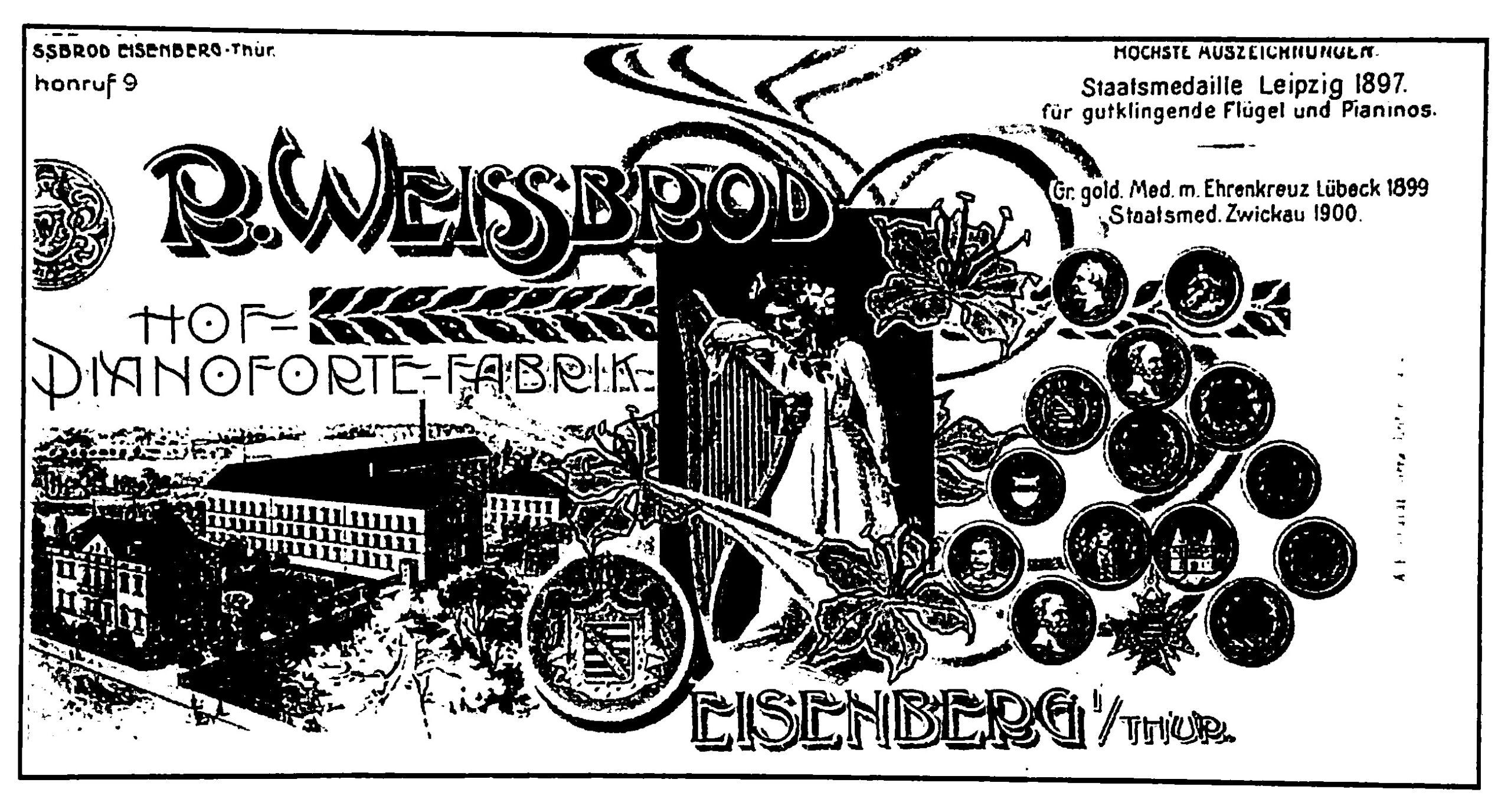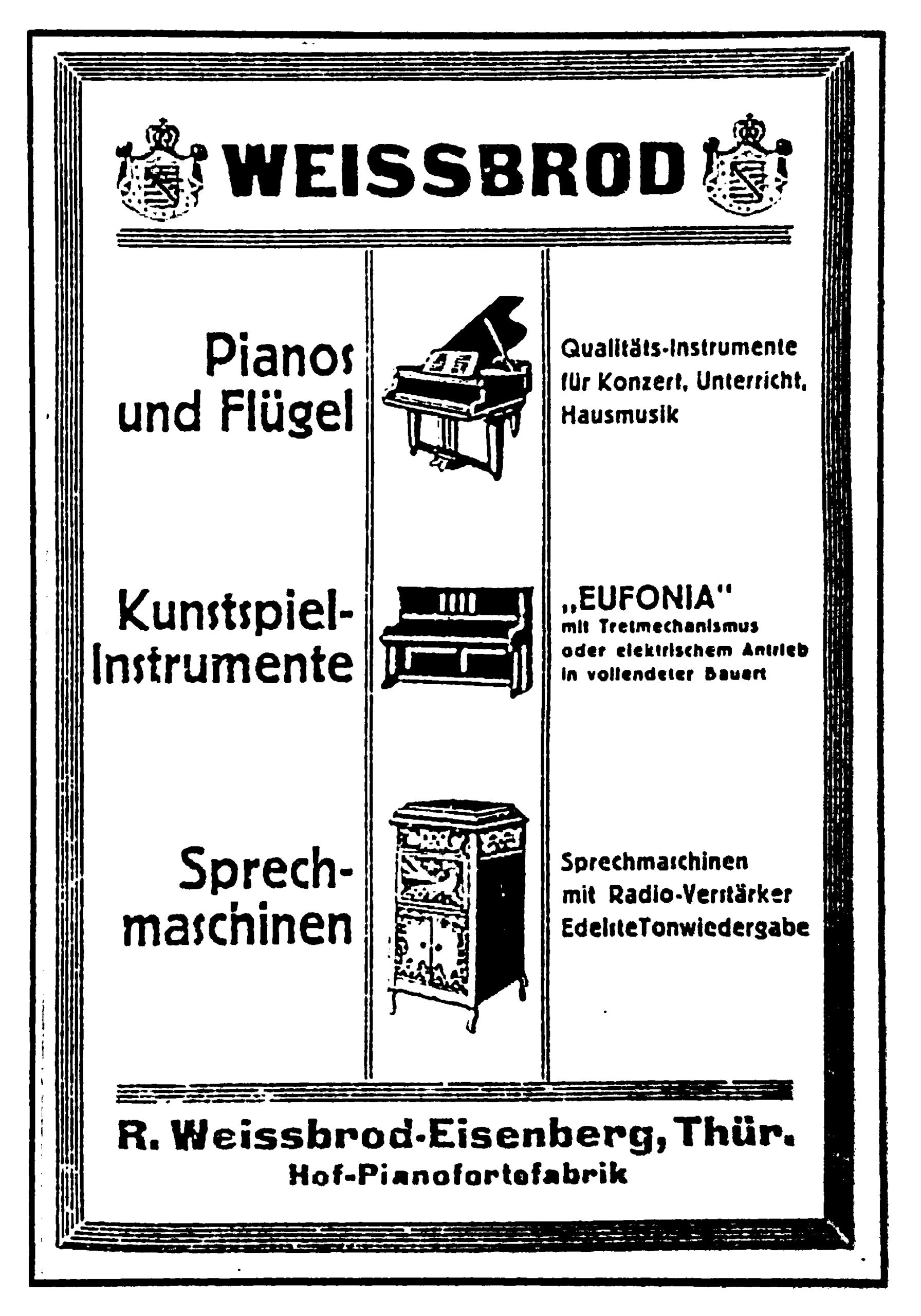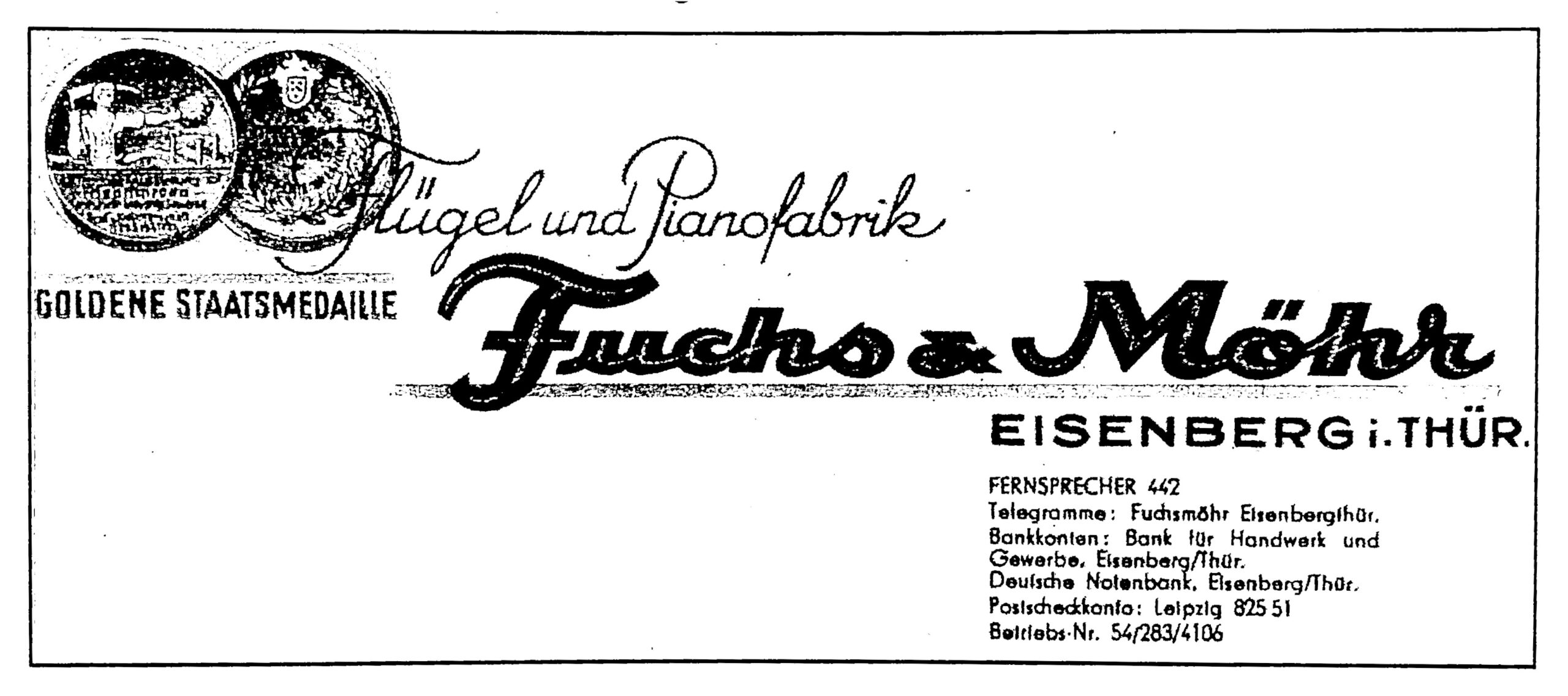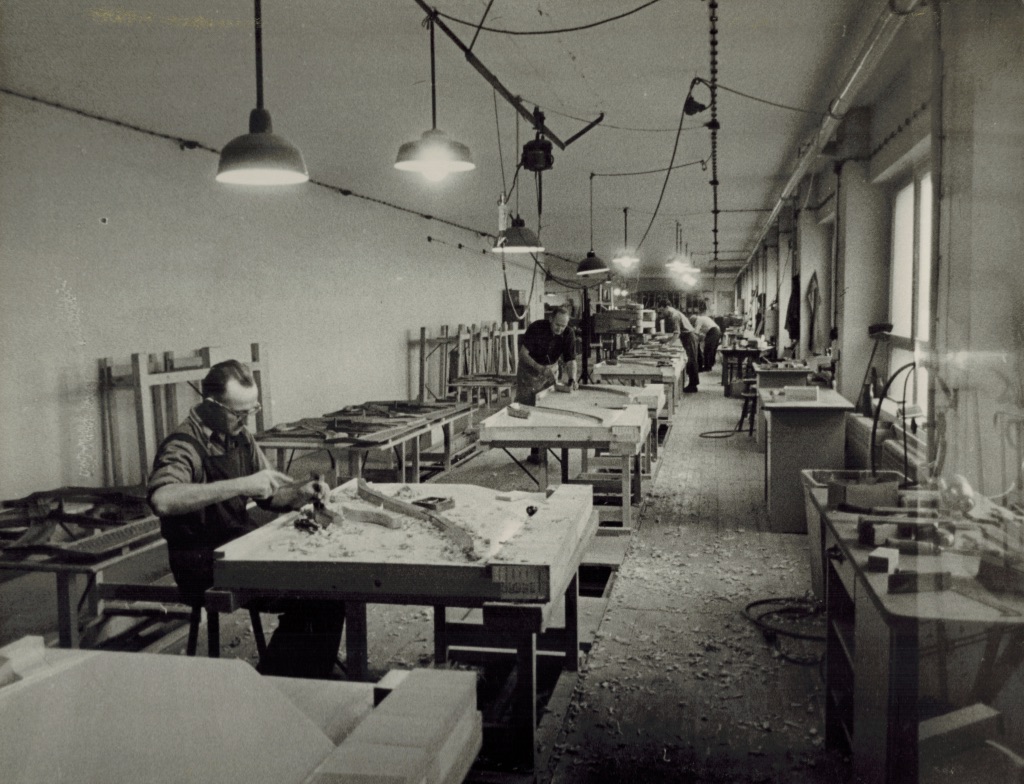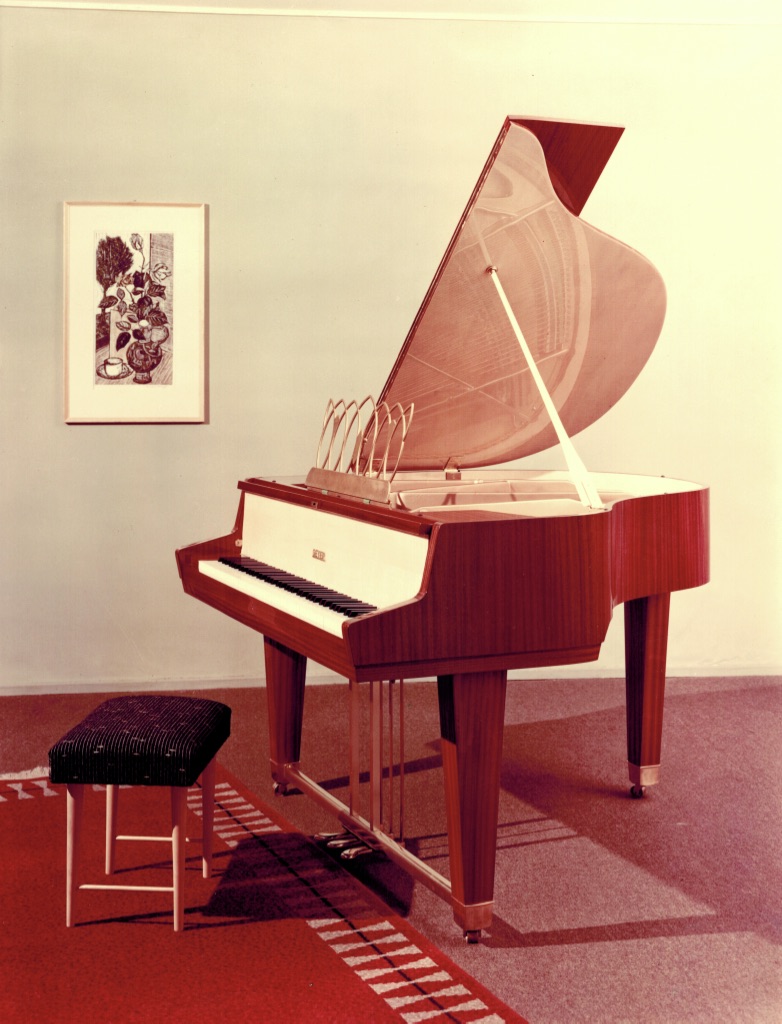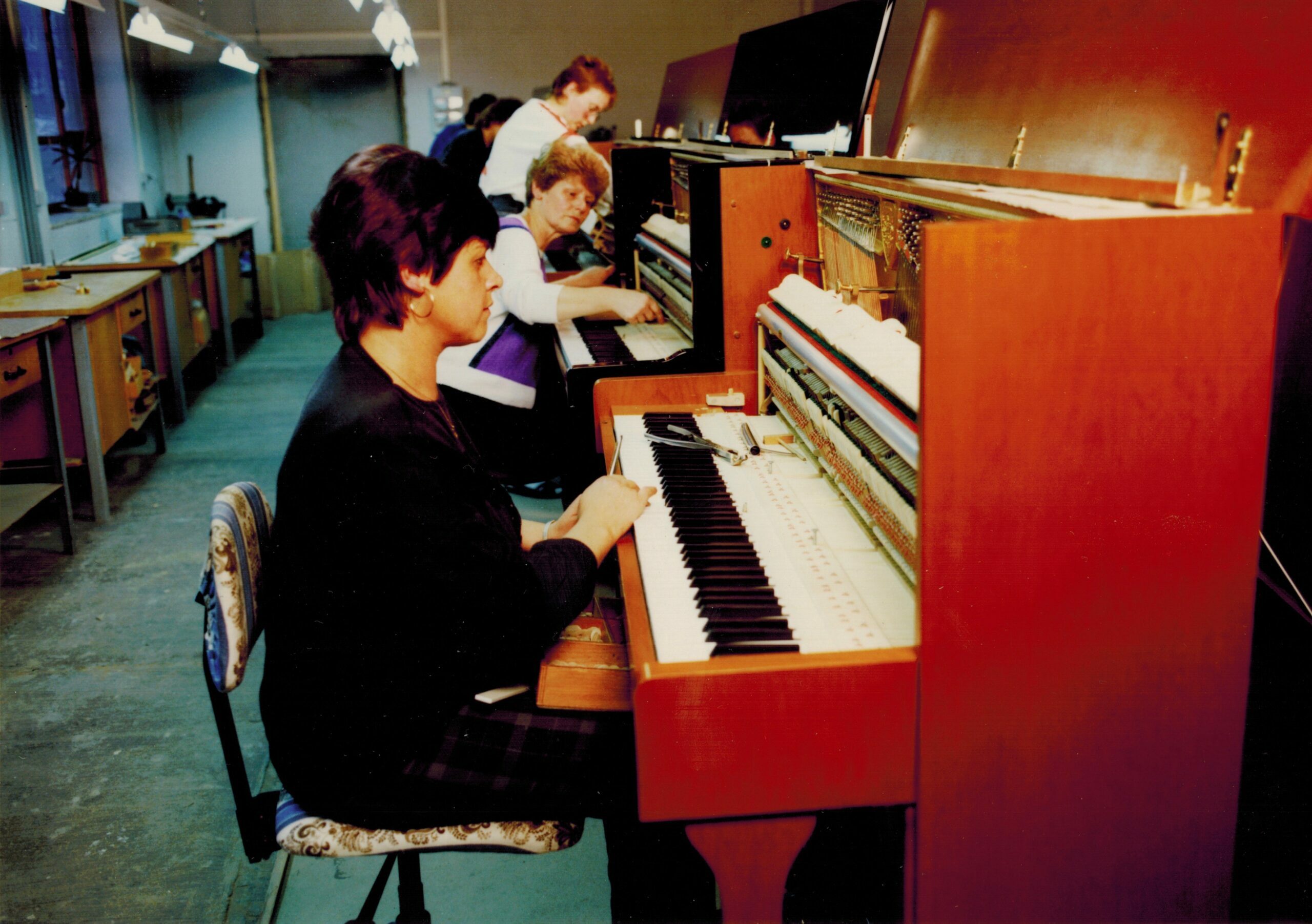History
Here you can learn interesting facts about the history of piano manufacturing in Eisenberg (Thuringia)
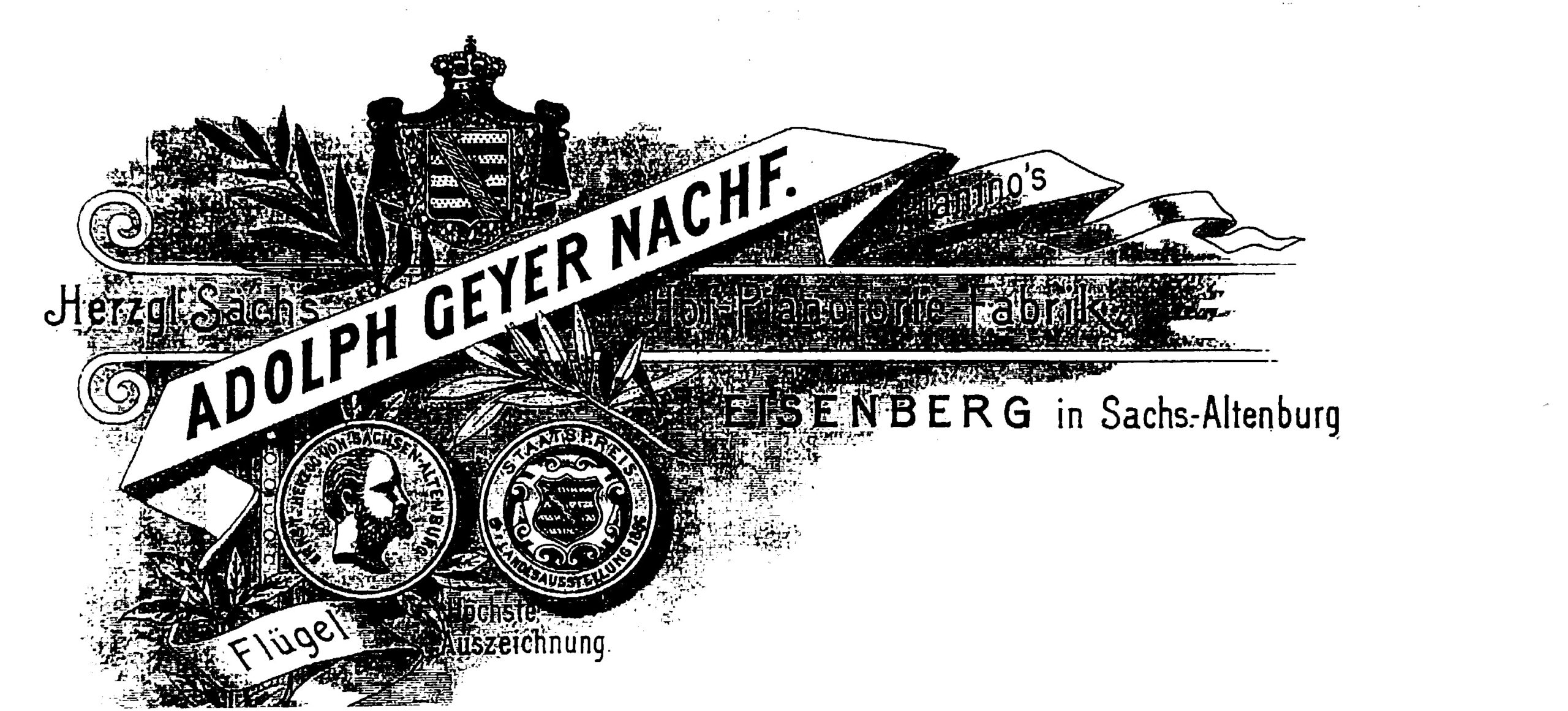

Adolph Geyer – founder and at the same time father of the Eisenberg piano industry was born on 23.11.1846 as the third son of the piano leather manufacturer Eduard Geyer in Eisenberg. He attended school at the former Zenker Institute in Jena. From here, Adolph Geyer was apprenticed to the piano factory of Hoellering & Spangenberg in Zeitz, which was already flourishing at the time, and later expanded his knowledge in several larger German piano factories.
However, in order to achieve greater things and expand his knowledge, Adolf Geyer decided to emigrate to America. He had the opportunity to further his education in piano building in Canada and New York, as well as to gain rich experience. Here he was able to further perfect his knowledge as a constructor and engineer in the field of piano making.
Rich in experience, he returned to his hometown Eisenberg in 1877 and founded his piano factory here on 02.12.1877.


